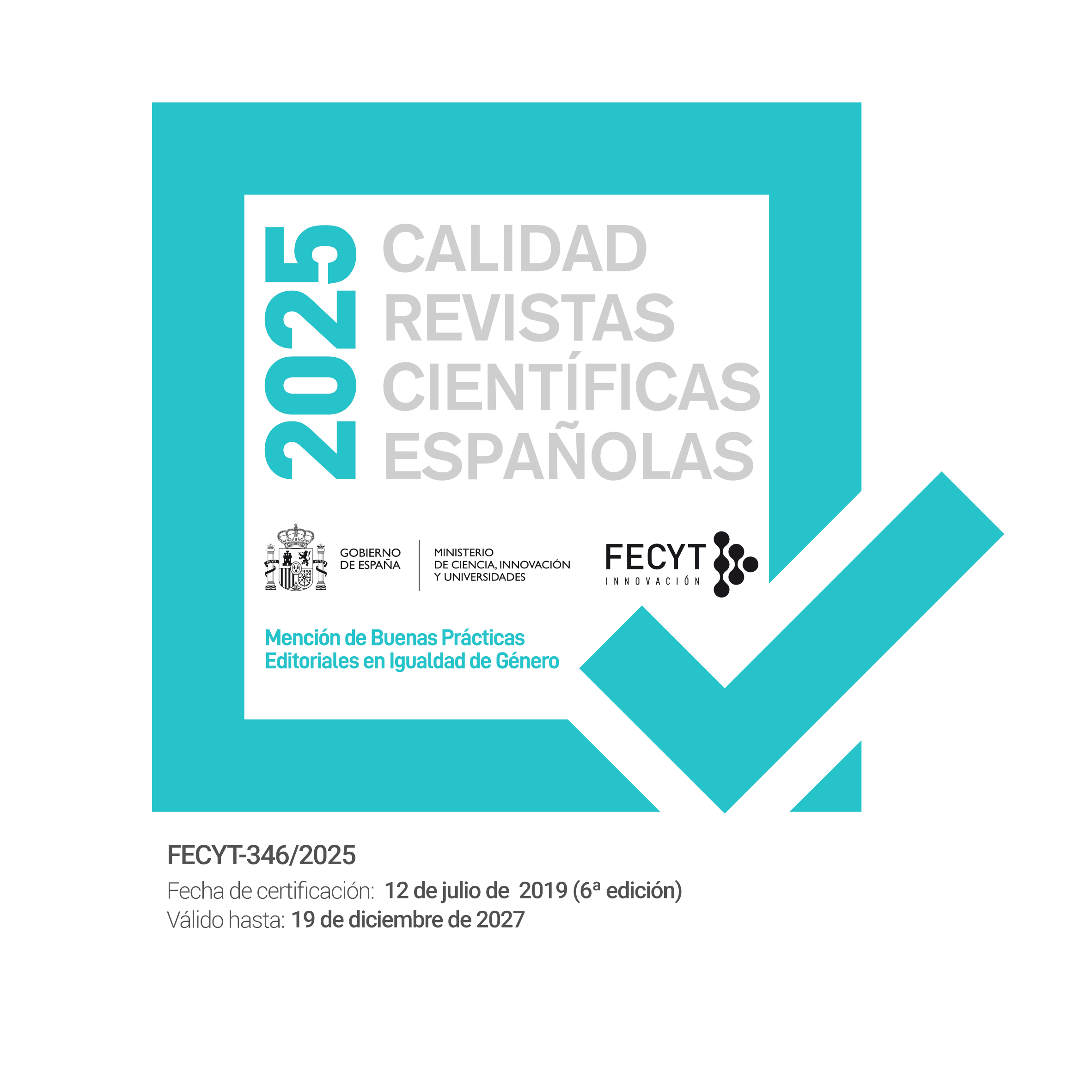The program of the French National Front in the light of the theory of winning formula
Keywords:
european radical right, extreme right, crisis, economic policy, winning formula, National FrontAbstract
Europe has experienced a progressive electoral boom of political forces of the European radical right, based a gradual abandonment of the liberal core of its economic proposals, to embrace a type of social policy baptized as “Welfare Chauvinism” or “State of Chovinist Wlfare”. Base on the experience of the French National Front (NF) in the last presidential elections of 2017, the article proposes to analyze the frontist proposal in the field of economic policy, through the application of the winning formula theory. Thus, the shift towards greater statism under the umbrela of social sovereignty, could be thought of as an evolution towards a new winning formula among the indentity rights of the European continent, which, like the NF, adopt an eminently economic programmatic offer to refer to the problems of its citizens in a context of crisis, with the aim of increasing their electoral support.
Downloads
References
Albertini, Dominique y David Doucet (2013). Histoire du Front National. Éditions Tallandier. https://doi.org/10.14375/NP.9791021007246
Agnew, John (2005). Geopolítica. Una re-visión de la política mundial. Trama editorial.
Alduy, Cécile y Stéphane Wahnich (2015). Marine Le Pen prise aux mots. Décryptage du nouveau discours frontiste. Éditions Le Seuil.
Baier, Laura (2016). Front National. La question de la légitimité du vote. Grin Verlag.
Benoist, Alain (2017). Le moment populiste. Droite et gauche c'est fini. Pierre-Guillaume de Roux.
Budgen, Sebastian (2002). El fiasco francés. New left review (edición en español), 17, septiembre-octubre, 31-49.
Camus, Jean-Yves (2007). La critique de l'islam, nouvelle obligation morale? Revue Internationale et Stratégique, 65, 123-128. https://doi.org/10.3917/ris.065.0123
Camus, Jean-Yves (2011). Le processus de normalisation des droites radicales en Europe. Cités, 45, 153-156. https://doi.org/10.3917/cite.045.0153
Camus, Jean-Yves y Nicolas Lebourg, N. (2020). Las extremas derechas en Europa. Nacionalismo, populismo y xenofobia. Clave Intelectual.
Casals, Xavier (2015). ¿Por qué los obreros apoyan a la ultraderecha? Diez reflexiones para elaborar una respuesta. Institut de Ciències Polítiques i Socials, Working Papers 341, 3-17. Universidad Autónoma de Barcelona.
Eltchaninoff, Michel (2017). Dans la tête de Marine Le Pen. Éditions Actes Sud.
Enser-Jedenastik, Laurenz (2018). Welfare Chauvinism in Populist Radical Platforms: The Role of Redistributive Justice Principles. Social Policy & Administration, 52(1), 294. https://doi.org/10.1111/spol.12325
Fernández-Vázquez, Guillermo (2019a) ¿Qué hacer con la extrema derecha en Europa. El caso del Frente Nacional. Lengua de Trapo.
Fernández-Vázquez, Guillermo (2019b): ¿Fórmulas ganadoras en el discurso político de la extrema derecha? Un análisis del Frente Nacional de Marine Le Pen. En A. Guamán; S. Martín y A. Aragoneses (eds.), Neofascismo. La bestia neoliberal (pp. 229-243). Siglo XXI.
Froio, Caterina (2018): Race, Religion or Culture? Framing Islam Between Racism and Neo-Racism in the Online Network of the French Far Right. Perspectives On Politics, 16(3), 696-709. https://doi.org/10.1017/S1537592718001573
Igounet, Valérie (2016). Les Français d'abord: slogans et viralité du discours du Front National (1972-2017). Inculte.
Ivaldi, Guilles (2015). Du néoliberalisme au social-populisme? La transformation du programme économique du Front National (1986-2012). En Ss. Crépon, A. Dézé y N. Mayer (eds.), Les faux-semblants du Front National. Sociologie d'un parti politique (pp. 163-183). Presses Universitaires de Sciences Po. https://doi.org/10.3917/scpo.crepo.2015.01.0161
Kitschelt, Herbert y Anthony J. McGann (1995). The Radical Right in Western Europe: A Comparative Analysis. University of Michigan Press. https://doi.org/10.3998/mpub.14501
Kitschelt, Herbert y Anthony J. McGann (2005). The Radical Right in the Alps: Evolution of Support of the Swiss SVP and Austrian FPÖ. Party Politics, 11(2), 147-171. https://doi.org/10.1177/1354068805049734
Le Pen, Marine (2012). Mon projet. Pour la France et les Français.
Le Pen, Marine (2017). 144 engagements présidentiels 2017.
Marcus, Jonathan (1995). The National Front and French Politics. The resistible rise of Jean-Marie Le Pen. McMillan.https://doi.org/10.1007/978-1-349-24032-6
Mondon, Aurélien. (2016). The Mainstream Of The Extreme Right In France and Australia. A Populist Hegemony? Routledge. https://doi.org/10.4324/9781315555898
Mondon, Aurélien y Aaron Winter (2017). Articulations of Islamophobia: from the extreme to the mainstream? Ethnic and Racial Studies, 40(13), 2151-2179. https://doi.org/10.1080/01419870.2017.1312008
Mondon, Aurélien y Aaron Winter (2020). Reactionnary Democracy: How Racism And The Populist Far Right Became Mainstream. Verso.
Mudde, Cas (2002). Globalización y reacción populista. En VV.AA., La extrema derecha en Europa. Mundo Revistas.
Oesch, Daniel (2008). Explaining Workers' Support for Right-Wing Popolist Parties in Western Europe: Evidence from Austria, Belgium, France, Norway and Switzerland. International Political Science Review, 29(3), 349-373. https://doi.org/10.1177/0192512107088390
Perrineu, Pascal (2014). La France au front. Essai sur l'avenir du FN. Fayard.
Public Senat (2017). Discours integral de Marine Le Pen-Meeting à Lille (26/03/2017), (enlace).
Rifftin, François (2014). "Pauvres actionnaires !" - Quarante ans de discours économique du Front national passés au crible. Fakir.
Rodríguez Giménez, José Luis (1995). El Frente Nacional de Jean-Marie Le Pen", Revista de Estudios Políticos (nueva época), 87, enero-marzo, 305-332.
Stier, Sebastian; Nora Kirkizh y Caterina Froio (2020). Populist Attitudes and Selective Exposure to Online News: A Cross-Country Analysis Combining Web Tracking and Surveys. The International Journal of Press/Politics, 25(3), 426-446. https://doi.org/10.1177/1940161220907018
Taguieff, Pierre-André (2002). L'illusion populiste. Berg Internacional.
Downloads
Published
How to Cite
Issue
Section
License
Copyright (c) 2021 Encrucijadas. Revista Crítica de Ciencias Sociales

This work is licensed under a Creative Commons Attribution-NonCommercial-NoDerivatives 4.0 International License.
Los autores/as conservan los derechos de autor y ceden a la revista el derecho de la primera publicación, con el trabajo registrado con la licencia de atribución de Creative Commons Reconocimiento-NoComercial (CC-BY 4.0), que permite a terceros utilizar lo publicado siempre que mencionen la autoría del trabajo y a la primera publicación en esta revista. Encrucijadas permite y se anima a todas las personas autoras a depositar la versión final publicada en repositorios institucionales o temáticos de acceso abierto, cumpliendo en caso necesario los términos establecidos por la entidad financiadora de la investigación.





